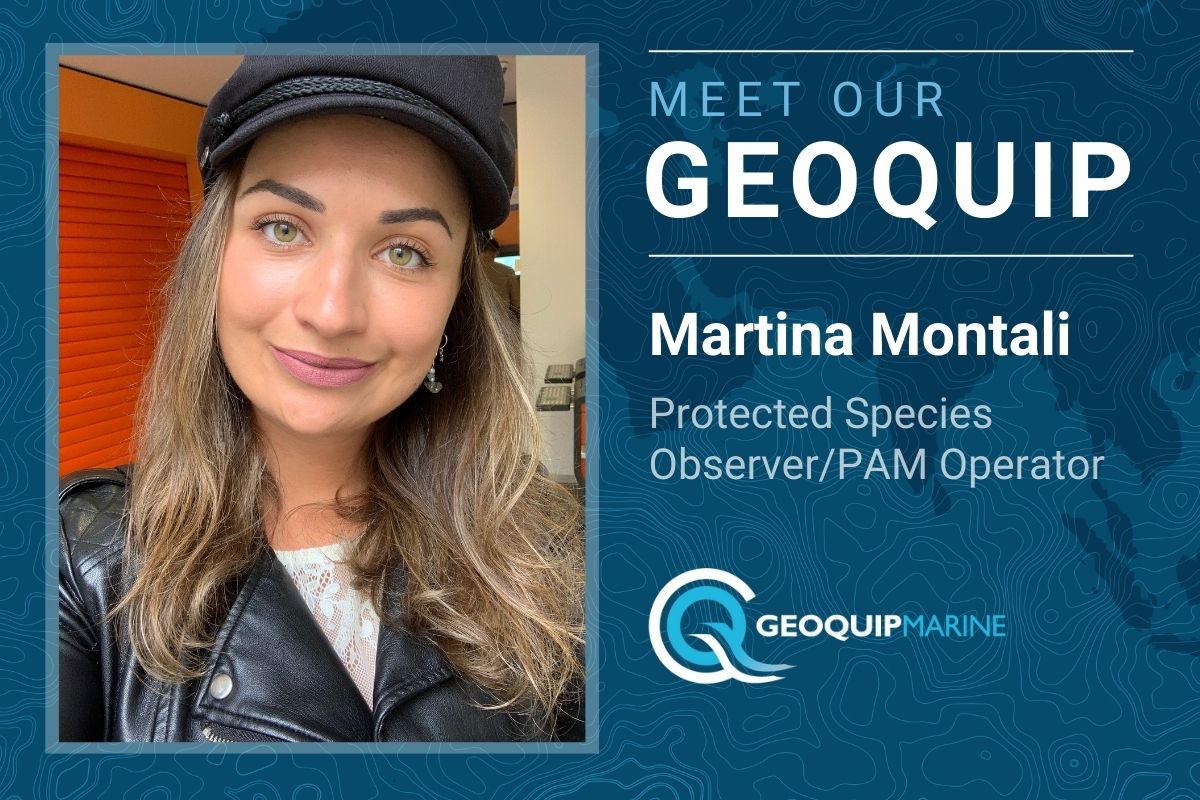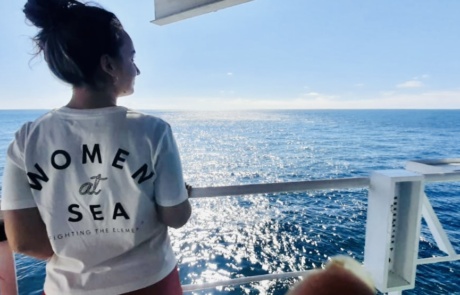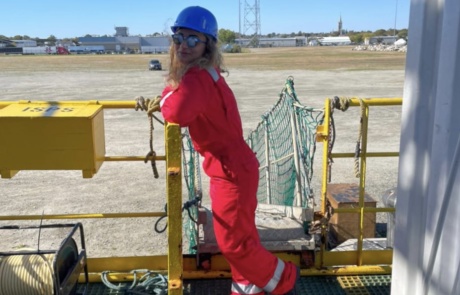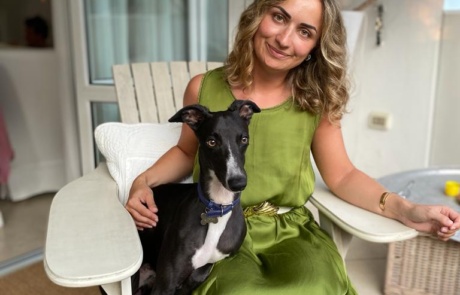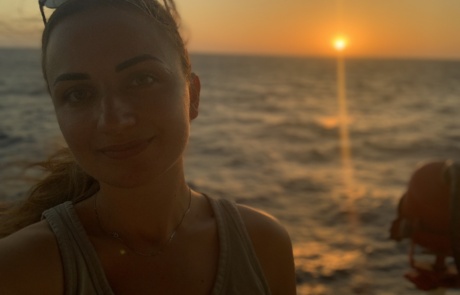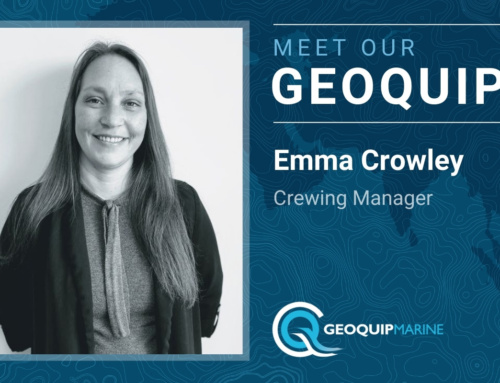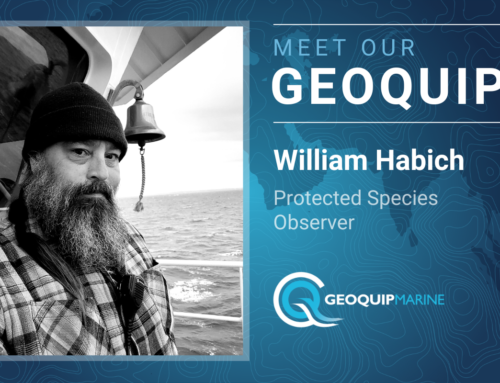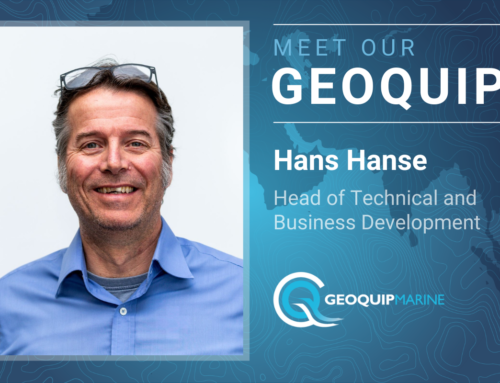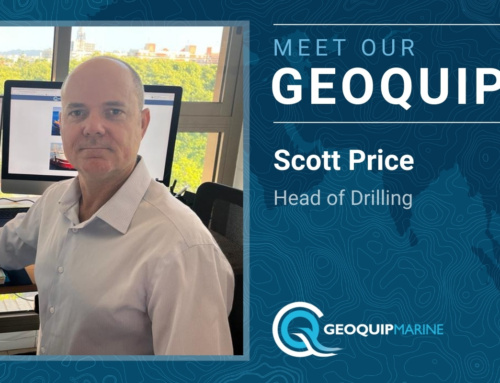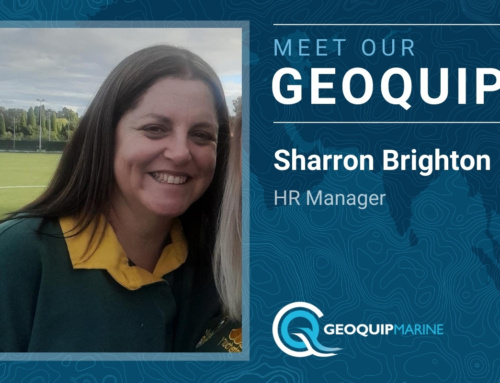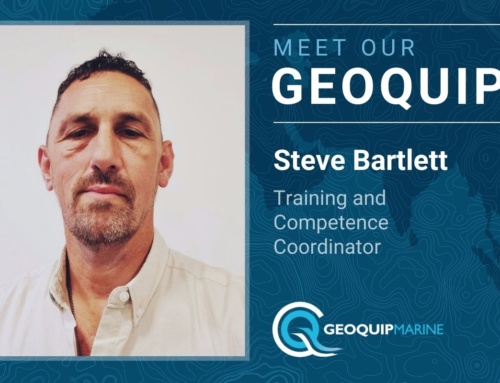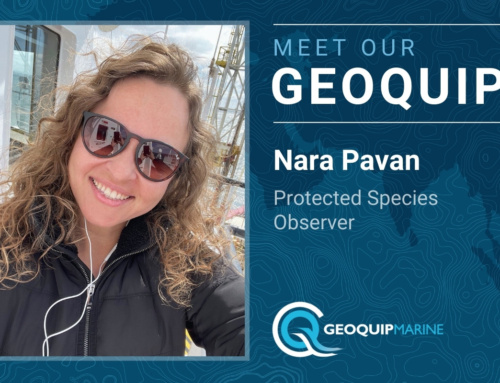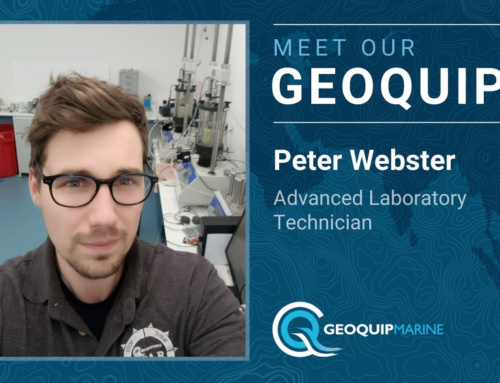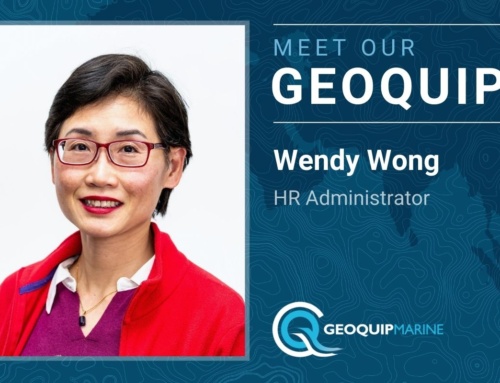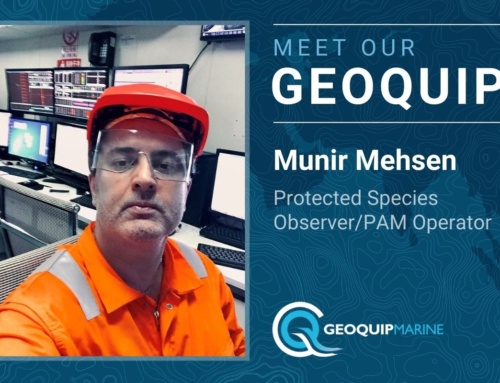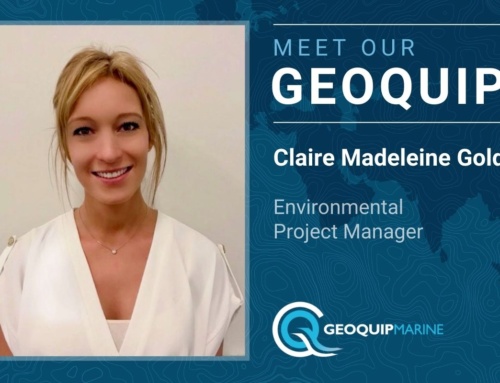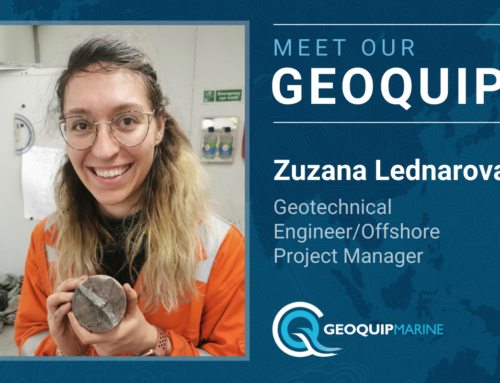Welcome to Meet Our Geoquip, our regular blog series featuring employee insights from across Geoquip Marine. This regular feature is an opportunity for the many diverse voices working in both on offshore and onshore teams to share their story, provide insights into their role in the company and offer advice to those looking to begin or continue their career in geotechnical engineering.
Today’s post features Martina Montali, a Protected Species Observer and PAM Operator working offshore at Geoquip Marine. We would like to thank Martina for taking the time to share her story with us.
Can you tell us about your role at Geoquip Marine?
I work as a Protected Species Observer and Passive Acoustic Monitoring (PAM) Operator onboard the Geoquip Saentis. My expertise is in identifying and recording encounters with protected marine species during offshore operations, both by visual monitoring and by using hydrophones when the PAM equipment is deployed. I work in a team ranging from four to six people, depending on local regulations. Together, we implement mitigation procedures where necessary, to minimise the impact geotechnical site investigations have on marine animals, and ensure the industry meets its regulatory compliance needs.
What inspired you to follow a career path into the geotechnical engineering industry?
Since childhood, I have always felt pulled to the ocean. This passion grew exponentially during the year I spent as a high school exchange student in Monterey, California, where I learned about oceanography for the first time. I followed this path through university, with a BSc in Aquaculture followed by an MSc in Marine Biology, after which I decided to give life at sea a try.
I have worked on different types of projects before joining the geotechnical engineering industry. I am proud to be on a career path that is contributing to protecting our planet by choosing renewables over fossil fuels and reining in future climate change. Working on greener projects and being part of this energy overhaul is meaningful to me; this process needs to be done judiciously and with as much information as possible, which is why monitoring marine fauna is fundamentally important.
What do you enjoy most about working offshore as a Protected Species Observer?
I love the outdoors, even if it means working in very cold temperatures. I enjoy the feeling of freedom I get by being on a vessel in the open sea. I am always in awe of close encounters with the stunning fauna – how they leave you feeling breathless every time and feeling small in the face of nature. In addition to all this, there’s the life onboard: meeting so many people, with diverse cultures, personalities, and backgrounds. I always learn something new when I go offshore – always – and I love it.
What are the key skills or attributes you need to be successful in an environmentally focused role such as yours?
Life onboard is not easy if you’re not passionate about this job. It is always valued to lead with a positive mindset and bring enthusiasm to your work, even though the long days and time away from land may make it difficult sometimes. Strong interpersonal skills are also important, as conflicts may arise, so being a good communicator is essential to maintaining good relationships on board. I would include resilience, flexibility, and open-mindedness as key enablers to working well on a team and with other members of the crew.
Furthermore, technical skills are required; in my opinion, offshore certificates are not enough if they’re not followed by a deep curiosity. The industry and its requirements are constantly evolving, but so is the environment, which is why investigating, reading, and studying should be a priority for those who want to be successful in an environmentally focused role.
What advice would you give someone who is considering a career with Geoquip Marine?
I’d say: What are you waiting for? Join the tribe!
Every time I’ve joined the Geoquip Saentis, I have felt at home: I’ve always found respect onboard, good vibes, and friendly faces to dine with. Life at sea is a great lifestyle if you are suited for it. However, it is not for everyone, as living in a confined space with a limited internet connection and the same faces all day, every day, can certainly be challenging.
When you are tired, you cannot just take a day off and leave it all behind. But despite those things, you’ll find that every offshore trip is different. It’s important to remember that everyone is there to work with you toward the same goal, but if you open yourself fully to the experience, you will always find opportunities to learn something new.
Finally, do you have any hobbies or passions outside of your work? Please tell us about them.
I’m fond of the outdoors, and so is my super speedy whippet, Oliver, with whom I go jogging and on long walks. It seems I can’t stay away from the sea, so I’m currently taking sailing lessons. I love to travel, and I’m always planning where to go next, although we all know how unpredictable offshore life is! Cooking is another passion of mine, and I’m applying for a second master’s degree in large marine vertebrate sciences starting next winter—fingers crossed!
Thank you for sharing your story with us, Martina!
If you would like to learn more about our offshore geotechnical site investigations, click here. You can also visit our Careers area and browse our latest vacancies and career opportunities.


